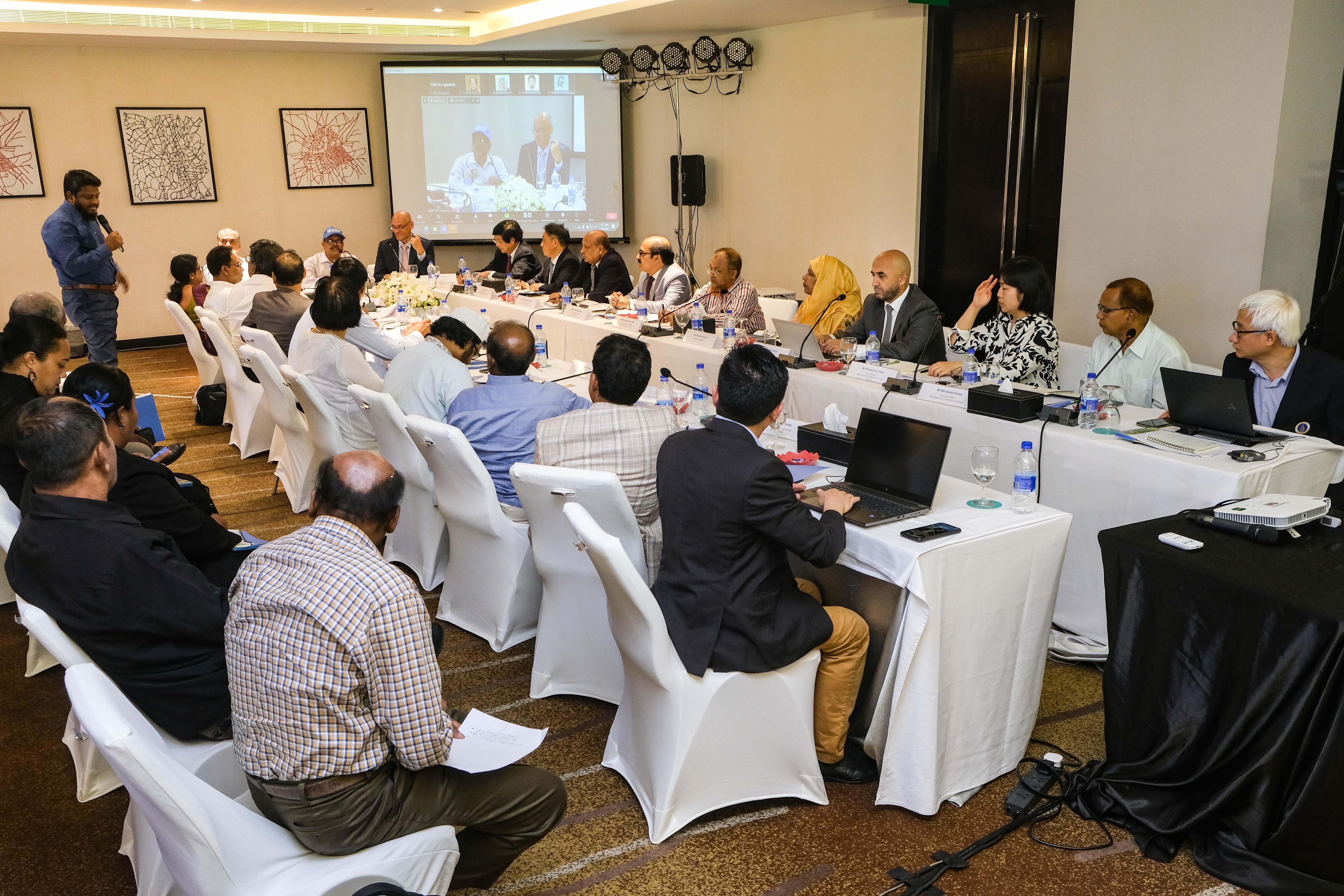News
First Meeting of National Task Force held to facilitate the Implementation of OCOP in Bangladesh

©FAO
Dhaka, 18 July 2023 – The first meeting of the National Task Force (NTF) for the implementation of the One Country One Priority Product initiative (OCOP) was organized with over 30 participants and observers. The meeting was co-chaired by Mr Ruhul Amin Talukder, Additional Secretary, Ministry of Agriculture, Government of Bangladesh, and Mr Robert D Simpson, FAO Country Representative in Bangladesh. These co-chairs will lead this body composed of 13 representatives from various stakeholders which has been established to oversee and facilitate the implementation of the OCOP in the country.
The Terms of Reference of the NTF were discussed and endorsed at the meeting. These will serve as a guiding framework for the NTF operations, outlining its responsibilities and areas of focus. The progress in the implementation of the OCOP from the global perspective was provided by Mr Jingyuan Xia, Director of FAO Plant Production and Protection Division (NSP), from the regional perspective in Asia and the Pacific by MS Xuan Li, OCOP Regional Focal Point, and the national perspective by Mr Md Kader, National Lead Agronomist in FAO Bangladesh.
.jpg?sfvrsn=73f3c6ed_1)
Defining the role of the NTF in supporting the implementation of the OCOP initiative in Bangladesh was a central topic of the meeting. The core objective of the NTF is to liaise with and support the Regional Organizing Group in Asia and the Pacific region (RAP) and thus leverage its expertise and resources. By actively collaborating with key stakeholders, the NTF will contribute to the successful sustainable development of the jackfruit value chain and ultimately drive economic growth and improve the livelihoods of small-scale farmers in Bangladesh.
The OCOP initiative is a globally recognized initiative of FAO that aims to enhance rural economies by promoting the development and marketing of Special Agricultural Products (SAPs) with unique characteristics and potential to be promoted in the regional and international markets. By identifying SAPs, the OCOP facilitates capacity development, infrastructure improvement, and market access. The implementation of the OCOP initiative in Bangladesh is expected to generate employment opportunities, uplift rural communities, and boost the country's overall economic progress.
With the formation of the NTF, Bangladesh will demonstrate its commitment to the successful implementation of the OCOP initiative. The collaboration between the government, FAO, and other relevant stakeholders is expected to create a conducive environment for the growth of local products, ensuring their sustainability and profitability in both domestic and international markets.
The NTF is poised to play a crucial role in steering the country toward achieving its goals of economic empowerment, rural development, and inclusive growth. By working hand in hand with a wide range of stakeholders, the NTF will capitalize on the untapped potential of local products, fostering a thriving sustainable agrifood system that benefits farmers, artisans, and the entire nation.
